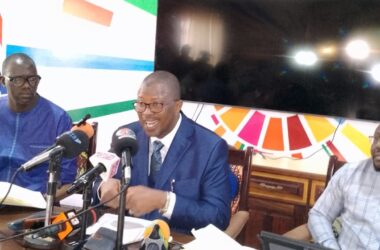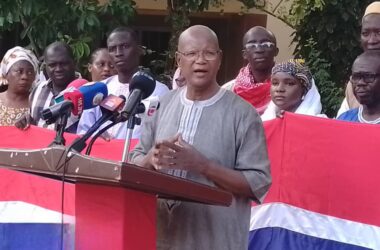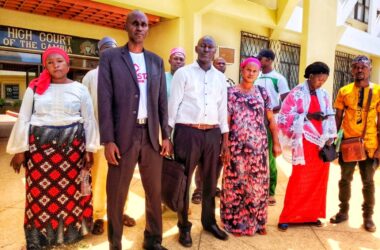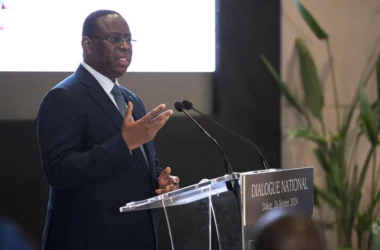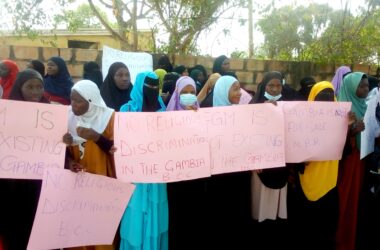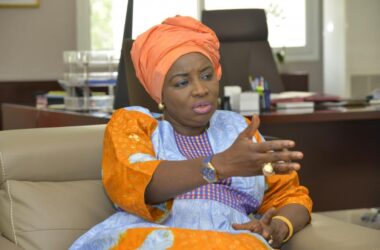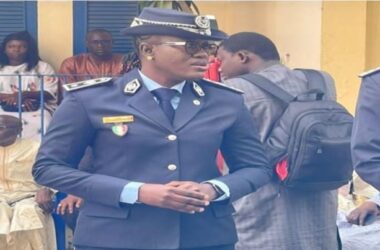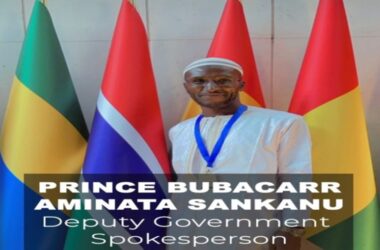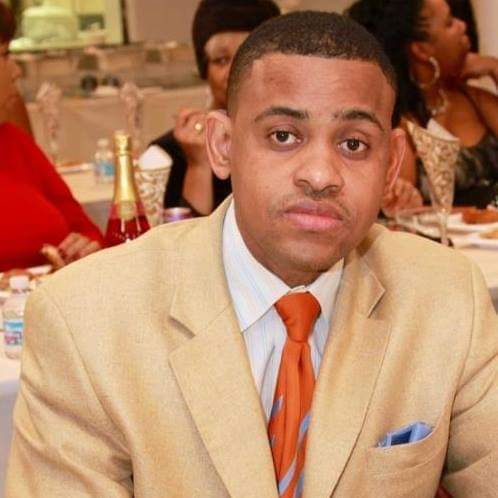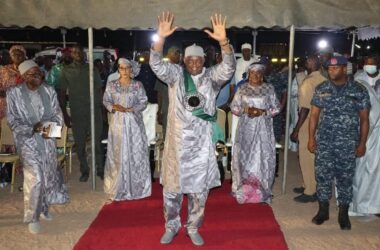
I finally set foot on Gambian soil on December 30, 2021. It would be 25 years since I left.
For 23 years, I remained a political exile in America. For my personal safety, I dared not return here. Jammeh was in power. And he hated his critics. Like me.
When I landed at the Banjul International Airport, it was evening time, but darkness hadn’t descended yet I looked around me but I couldn’t recognize my premises. The airport had undergone a major expansion; it was one of Jammeh’s pet projects.
When I left on January 10, 1996, the airport was like an arid place; it was bare and dry. The air had a certain pungency to it. The seating area was in the open. The planes were within an eyeshot. There was an unmistakable disorderliness to it all, the handling of process and people, that is.
In months prior, my paper, The Daily Observer, would send me to the airport. No, I wasn’t there to receive guests of the company. I was there on a reporting assignment. Chernor Ojuku-Sesay, a staff reporter for the paper, had been detained there, awaiting deportation to his native Sierra Leone. The military leaders wanted him gone.
I hurriedly left the Observer offices in Bakau and took a taxi to the airport. When I arrived, some senior members of the Gambia Press Union were already there.
Ojuku wasn’t accessible. He was alone inside a holding room. Through the window glass, he could be seen walking back and forth. We couldn’t talk to each other.
He was finally put on a flight to Sierra Leone.
In late 1994, the military would force our boss Kenneth Y Best back to his war-torn Liberia, leaving behind the paper he founded. His paper in Liberia, also called The Daily Observer, would fold up after the civil war entered the Liberian capital Monrovia in 1990. Samuel Doe’s supporters torched the paper’s offices to the ground. Best and his family fled to Ghana and later proceeded to The Gambia.
The Observer was always suspicious of Jammeh and his colleagues. Best, no stranger to military dictatorships and having gone through countless detentions during Doe’s tyranny, would warn us not to be taken in by Jammeh’s soap-box oratory.
We saw through it all. Jammeh began to dilly-dally on a timetable for a return to constitutional rule. And the Observer went on a warpath. Its editorials took an acerbic turn. The news department ran a series on the negative impacts of a delayed timetable. We covered the tourism and business sectors, agriculture and foreign affairs. We interviewed members of the donor community. The conclusion was inescapable: the uncertainty over a timetable was bad for the country.
The military leaders were incensed. Best, who had directed most of the coverage, became prime target. The NIA picked him up and took him to an undisclosed location in the Kartong area. A few days later, he was deported to Liberia. The country was still at war.
I remember the ordeals I went through between 1994 and 1996. Just prior to my departure, the then-Acting Nigerian High Commissioner to The Gambia, Geoffrey Teneilabe, would serve the Observer a suit for defamation. I was a party to this suit. Teneilabe had been angered by a column I wrote about his boss, the late Nigerian head of state Sani Abacha. The summons were dropped off at the Observer. I was at the office when the courier, an official from the Nigerian High. Commission, arrived.
But our lawyer Ida Drammeh saw nothing wrong with what I had written. It was my opinion, and how could you sue somebody for merely expressing their viewpoint? We knew we had nothing to fear. Teneilabe would later drop the matter before we even got to court.
In late 1994, NIA agents, led by the late Daba Marenah, dragged me all over the NIA headquarters in Banjul. They threw me into a bare cell and slammed the door behind. I sustained injuries to the neck, arms and legs. They seized my notebook and camera.
For what? For just being a curious reporter standing outside the fences and peering in. Inside the NIA compound, two men lay on the ground. NIA agents stood over them. They kicked and punched the two gentlemen. I still don’t know what they did. As I observed the incident, NIA agents rushed towards me and grabbed me by the neck. They threw me on the ground and dragged me all the way into the cell.
In early 1995, my-then editor Baba Galleh Jallow, and formerly with The Gambia Truth, Reconciliation and Reparations Commission (TRRC), called me into his office at The Observer. He had a suggestion: I should start a weekly column writing about the raging issues of the time. I unhesitatingly agreed. He gave it a name: ‘Thé Weekend Perspective.’ The column appeared every Friday.
But my first column landed me in trouble. Entitled ‘Jammeh’s Chequered Year,’ the column was an appraisal on Jammeh’s one year in office —- what he got right and what he got wrong. The NIA picked me up for questioning. Inside the NIA offices, I sat through a barrage of questions. They had the entire article marked up, some paragraphs circled. ‘What do you mean by …’ they would ask. ‘Why are you saying this about the Chairman (Jammeh)?’ It was ridiculous. I was allowed to go home but with a warning: ‘You have to be careful, Mr. Jallow.’
Time after time, I penned commentaries critical of the military leaders. They weren’t amused. From detentions to phone threats, I was living on a knife’s edge. Once, leaders of The Gambia Students Union (GAMSU) almost assaulted me inside the newsroom. They had come to the office to discuss their grievances about a column I had written about their organization, but it turned into a shouting match. Security stepped in and threw the student leaders out.
On one mid-afternoon in 1995, the late Deyda Hydara and his longtime sidekick Pap Saine, paid me a courtesy call at The Observer. I had returned from the NIA for another questioning about my writings. Hydara offered support but he seemed worried for me. He urged me to stay the course but offered a note of caution: ‘’just be prudent.’’
Speaking truth to power in a military dictatorship takes a lot of courage. And prudence.

